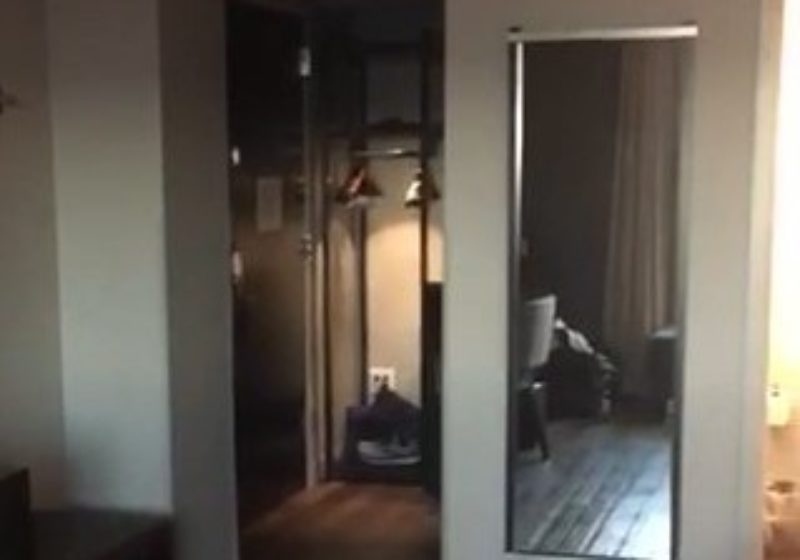Due to the COVID-19 pandemic, New York’s public health department requires all students arriving on campus from restricted states to quarantine for two weeks.
For most students, the idea of being stuck in a single room, alone, for two weeks sounds like a recipe for disaster. However, for rising sophomores Monica Lee, Antony Georgiadis, Rodney Berryman, and Phuong Le and rising senior Abhisesh Acharya, their time in isolation went better than expected.
Originally from California, Lee and Barryman took advantage of the University’s free quarantine housing option at the Riverview apartments. The Riverview apartments are equipped with private bathrooms, a personal desk, and a bed.
Also from California, Georgiadis had planned to quarantine in Illinois, but soon after his arrival, Illinois was added to the list of restricted states. Although he was no longer eligible to quarantine at Riverview, he says that the cost of staying at the Hyatt was still worth the price, and opportunity to come back. As an optics student, Georgiadis had a “poor experience with the [online] physics labs” last semester, and wanted a more interactive experience.
Filling time was among the biggest challenges everyone faced in quarantine. Lee and Barryman chose to spend their waking hours leisurely, watching YouTube, K-dramas, or animes. Berryman recommends the YouTube series “Pitch Meetings” by Screen Rant, and shounen animes like “Fairy Tail” and “Goblin Slayer.” He admits that he “sleeps in all the time” since he now has an “excuse to be lazy.” In addition to watching anime and K-dramas, Lee learned how to play “Count on Me” by Bruno Mars on the ukulele and practiced ASL.
Conversely, Le and Georgiadis established personal routines including errands, exercise, meals, breaks, and rest. Upon arriving in his room, Georgiadis says he mentally divided the space in sections to relax, work, and sleep. Having that distinction helped him stay on track with his schedule and remain productive.
In his routine, Le allocated time for cooking meals. Assigned to a four-room suite with a shared kitchen, Le wore a mask when he used the communal kitchen space. For a change of environment, Le spiced up his quarantine by eating his meals by the window. Like Acharya and Lee, he missed the sunlight and fresh air, so this routine helped mitigate the lack of nature.
When food inevitably ran low, students used services such as GrubHub and InstaCart instead. While Lee found she often had to wait for at least 40 minutes, Berryman says that his wait times fluctuated depending on the time of day.
Many students also encountered issues traveling from the airport to quarantine housing. On move-in day, most students had to use some form of public transportation. Lee recalls that she arrived with fellow classmates who were also quarantining at Riverview, most of whom used ride services like Lyft and Uber. Georgiadis said that her Lyft ride “seemed pretty counterintuitive to me if the whole point is to quarantine.”
Despite these minor setbacks, everyone generally agreed that quarantine was more enjoyable than the online alternative. The general consensus said it was worth the opportunity to see their friends, attend in-person classes, and be part of the campus community once again.
He also found it difficult to keep up his good habits. At the beginning, he was extremely cautious with disinfecting and donning PPE, but later on, this vigilance began to wear off.
Looking back on the last two weeks, Le was left with a grim takeaway. “Human resistance [to endure these circumstances] isn’t very strong.”
At the end of the day, COVID-19 is a public health issue that involves everyone. Remember that overcoming the pandemic is not the result of a few individual efforts, but an entire community effort.



